Support strong Canadian climate journalism for 2025
An Alberta oilpatch company met with federal officials 22 times last year to lobby them about major fossil fuel projects. Ottawa is now drafting rules to specifically allow the company, AltaGas, to dump saltwater into a major Nova Scotia river.
The government says the proposed rules would reduce risks to "fish, fish habitat, and human health from fish consumption" by creating limits on brine release into the Shubenacadie River as part of the Alton Gas project, which federal officials would then oversee.
A government spokeswoman also said that it was in the early stages of consultations on the matter and would ensure high environmental standards on any decision.
But the Trudeau government’s proposed regulation and the direct benefit it would provide one company is raising eyebrows in light of the Trans Mountain pipeline imbroglio and SNC-Lavalin affair.
In all three cases, the Trudeau government attempted to propose policies under heavy lobbying pressure from the companies involved, Texas-based Kinder Morgan, Quebec-based SNC-Lavalin, and now Alberta-based AltaGas.
In the most recent SNC-Lavalin case, the Prime Minister’s Office has been accused of inappropriately seeking to help the engineering company avoid prosecution on bribery charges.
An opposition critic says the Alton Gas plan is just another example of the Liberals stepping in to prop up big business, and a homegrown Hollywood star is also speaking out against the project.
“Once again, it’s a pattern with this Liberal government. They side with rich corporations instead of protecting marine life and the ecosystems they depend on which is the very goal of the legislation,” said NDP environment and climate change critic Alexandre Boulerice.
“We don’t want any changes that would give a company an exception to go ahead. It’s contradictory with the commitment of the Liberals to protect the environment and the ecosystem.”
“The Liberal government has claimed that no relationship is more important than that with Indigenous peoples, but its actions have too often demonstrated little progress towards real and meaningful reconciliation,” Boulerice said, referencing the Trans Mountain pipeline project, on which a federal court has ruled Ottawa did not adequately consult with Indigenous communities.
Boulerice said the Millbrook First Nation and other nearby Mi’kmaq First Nations had raised serious concerns about the Alton Gas project that must be addressed.
Actress Ellen Page tweeted a link to an online petition to stop the project earlier this month. “Sign this petition to support our environment and indigenous rights!! Mi'kmaq water protectors have been protesting Alton Gas in Nova Scotia to save our land and water,” she wrote, before pinning the message to the top of her Twitter profile.
'Deleterious substances'
The Trudeau government is proposing a new exception to the law to allow the Alton Gas Project to dump saltwater into the Shubenacadie River, which feeds into the Bay of Fundy via Cobequid Bay and the Minas Basin.
Section 36 of the Fisheries Act bans “deleterious substances” from being released into waterways frequented by fish, but the proposed regulation, which also falls under this section, would give the company’s subsidiary Alton Gas special permission to do so. The law is written to allow governments to make exceptions, when it concludes that they would be justified.
The Trudeau government, which faces an election later this year, could adopt the new rules following its review by publishing the change in the government's official publication, the Canada Gazette.
AltaGas’ focus in its sustained lobbying efforts included natural gas storage in Atlantic Canada, the federal lobbying registry shows.
Of the 22 meetings AltaGas had in Ottawa in 2018, five were with Environment Department officials, and two were with Liberal Nova Scotian MPs Sean Fraser, who represents Central Nova, and Bill Casey, for Cumberland-Colchester, the district where the Alton Gas Project is located.
Casey is not running for re-election in the upcoming federal vote.
Casey is a former Conservative MP who famously voted against his government's budget over opposition to the Atlantic accord in 2007, before returning to Parliament years later as a Liberal for the sprawling rural riding that backs onto the Bay of Fundy.
It is there, about 12 kilometres from the Shubenacadie River and some 65 km north of Halifax, that AltaGas' subsidiary, Alton Gas, wants to pump tonnes of water a day a kilometre into the earth to carve out three storage caverns for its natural gas from undergrounds salt deposits.
It plans to return 10,000 tonnes a day of brined water to the Shubenacadie, half with each tide, which senior advisor Lori MacLean compared to four million tonnes of tidal flow at the site and 55 million tonnes of tidal flow across the estuary.
It said there will likely be a “slight increase” in salinity levels at the release site.
The area is known for its striped bass and bald eagles, and is home to nearby Sipekne’katik First Nation, which has about 2,600 members. The local Mi’kmaq have traditionally used these rivers and surrounding lands for fishing, hunting and picking blueberries.
The proposed federal regulation would back up existing provincial guidelines that say salinity within five metres of the release site must be no more than 28 parts per thousand (or 28 grams of salt per litre of water). Baseline conditions of the estuary where the brine will be dumped are about 18 grams of salt per litre, according to an Alton Gas salinity report. The salinity of Nova Scotia’s Bay of Fundy is 30 grams per litre; the ocean is 35 grams per litre.
The purpose of storing the natural gas is to stabilize prices year-round, which the company and both levels of government say is expected to lower people’s overall natural gas bills.
It would be the only natural gas storage facility in Atlantic Canada, and connect to the nearby Maritimes & Northeast Pipeline, a 1,101-kilometre pipeline to transport natural gas from developments off Nova Scotia's coast to markets in Atlantic Canada and the northeastern United States.
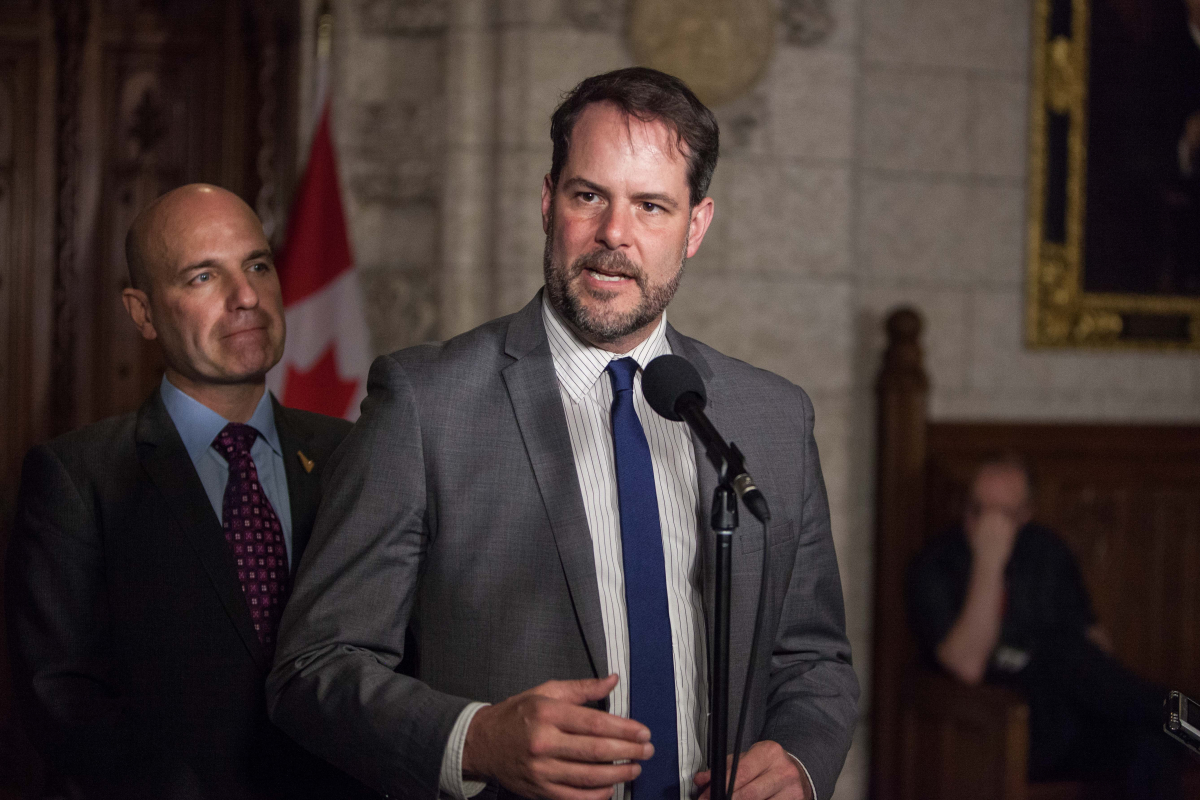
Fighting for a decade
First Nations communities and environmentalists have vehemently opposed the plan for the potential negative impact the saltwater could have on freshwater fish and other wildlife in the area.
They have been fighting it in the courts and at the Alton Gas site for more than a decade, peacefully picketing and blocking roads for short periods, and demanding more consultation.
Days before the Supreme Court judge granted a temporary order to remove a Mi’kmaw man and others camped out on the Alton Gas work site, a group of Mi’kmaw grandmothers symbolically served AltaGas with its own eviction notice at an event in nearby Halifax, the provincial capital.
Dorene Bernard told Global News at the news conference that it’s their sacred duty as life-givers to protect the water.
“(It’s) for our own grandchildren and future generations, but also for the swimmers and the flyers and the four-legged and winged ones,” she said, adding that her elders say they will risk their lives to protect their lands and waters.
“That’s where we are today. No one should have to go this far to prove that we are a sovereign nation and this is our right.”
Nova Scotia’s relationship to the Mi’kmaq -- who pre-contact lived across what is now the province and much of Atlantic Canada -- is fraught with unresolved issues relating to Indigenous treaty rights. Those rights were affirmed in Section 35 of the Constitution Act in 1982, finally providing legal status to a series of treaties the Mi’kmaq signed with the Crown starting in 1725.
One of them was the right to hunt and fish on their traditional lands, but implementation (and how much that right can impede industrial development) has often been disputed.
According to the province, the extent of those treaty rights, as well as the responsibilities and authorities of governments with respect to those rights, still remain largely undefined.
The lack of clarity on Mi’kmaq treaty rights, no doubt, is fueling much of the dispute over the Alton Gas Project today.
Sipekne’katik First Nation, the second-largest Mi’kmaq band in Nova Scotia, firmly opposes the Alton Gas Project, citing inadequate consultation and concerns that the brining process could impact the river and fish.
The band worries the project impacts their treaty rights to earn a moderate livelihood from fishing, and threatens their domestic economy, cultural and social life in and around the lands of the Shubenacadie and Stewiacke rivers, according to a letter the band submitted on Feb 28 to the Nova Scotia Utility and Review Board.
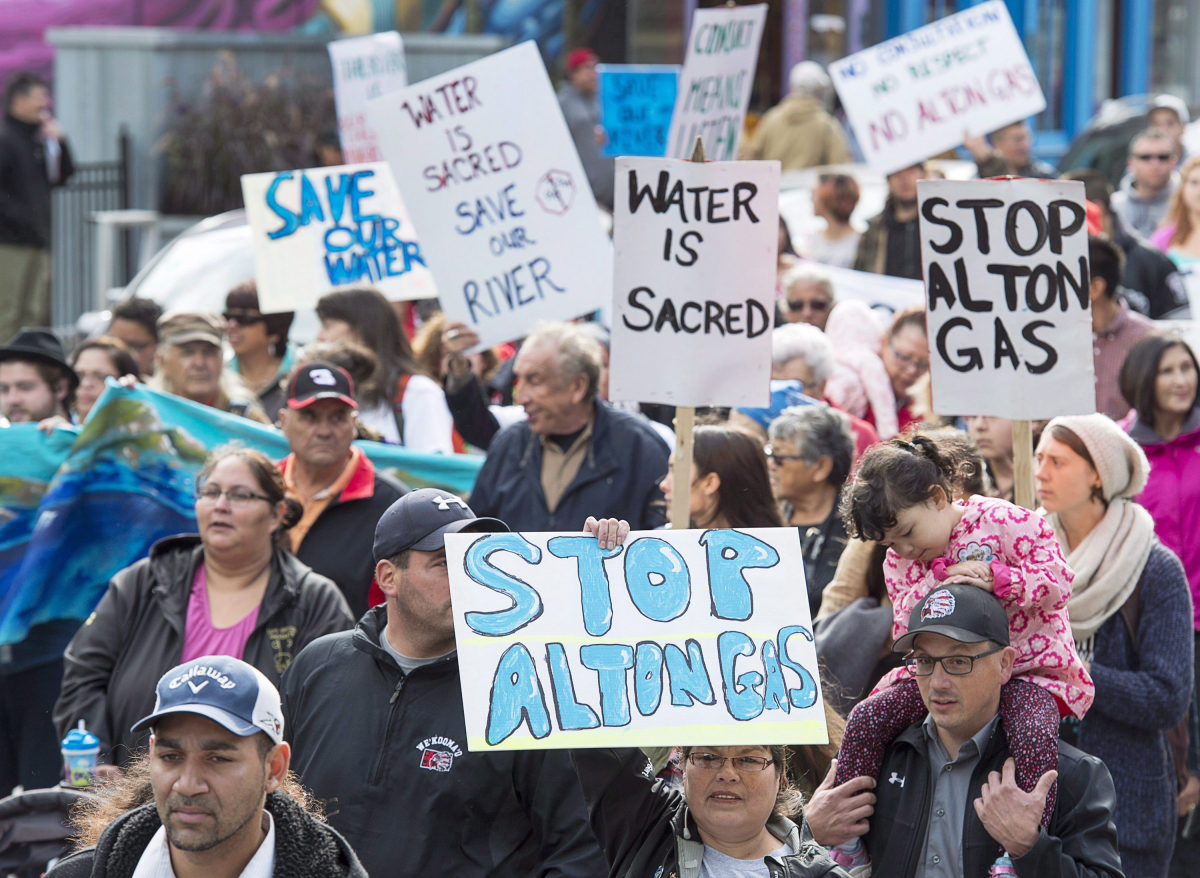
Expired approvals extended, provincial talks ongoing
So much time had passed since the Alton Gas Project was first proposed that approval to build the underground storage facility had recently expired.
But on March 11, the board, an independent tribunal and regulating arm of the Nova Scotia government, decided to extend the deadline for the construction of the salt caverns to September 2023.
In its decision, the board said the most appropriate way to address whether consultations were adequate is through the provincial minister of environment, adding that more talk would duplicate provincial efforts and be inefficient.
The argument of insufficient consultation with Indigenous groups is the same one a federal court upheld when it quashed the federal government’s approval of the Trans Mountain pipeline expansion last August, months after Ottawa purchased the project on behalf of all Canadian taxpayers for $4.5 billion.
The AltaGas project, much like Trans Mountain, has faced numerous delays since it received environmental approval from the province a decade ago, mainly due to the sustained opposition.
Work halted in 2014 to allow for more consultation after the Assembly of Nova Scotia Mi’kmaq Chiefs and Sipekne’katik First Nation spoke out against it.
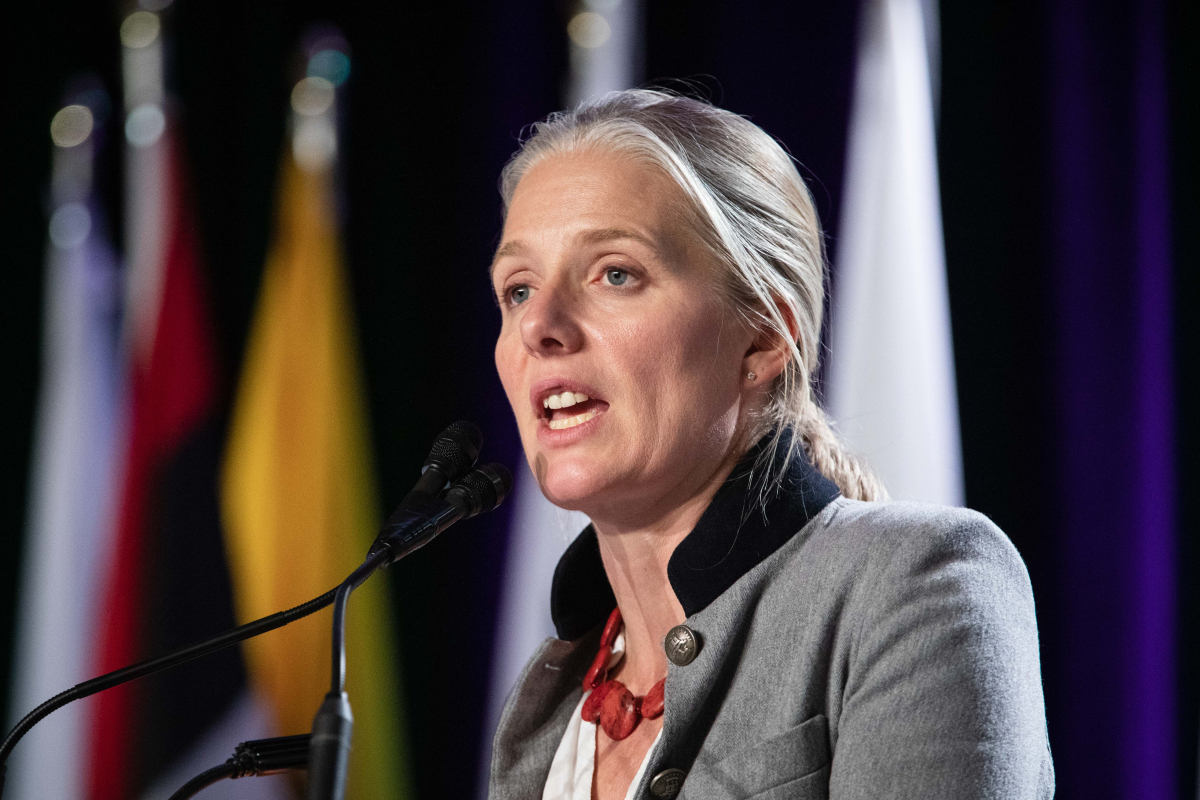
Feds get involved after years of provincial wrangling
Now, after 12 years, Environment and Climate Change Canada is getting involved. It proposed an amendment to the Fisheries Act specifically for the project, moving from a ban to regulating brine releases at provincially-sanctioned levels.
“The objective of the regulations will be to prevent risks to fish, fish habitat, and human health from fish consumption by establishing conditions on any brine release to the Shubenacadie River resulting from the cavern development activities that will be part of the Alton Gas project,” said Gabrielle Lamontagne, a spokeswoman for the federal environment department, adding that the regulations would form the basis of ongoing federal oversight of the project.
An independent Mi’kmaq Ecological Knowledge Study found that the project could potentially affect Mi’kmaq traditional use in the area, especially with regards to trout and salmon fishing.
'Tackling climate change, creating good middle class jobs...'
The prime minister's office deferred to the office of Environment and Climate Change Minister Catherine McKenna on a question about whether the government's action with regards to Alton Gas could be compared to its roles in Trans Mountain and SNC-Lavalin - that is, as a benefit to corporate interests at the expense of Indigenous rights and environmental protection.
“Our government is taking serious action to tackle climate change, create good middle class jobs and protect our oceans and waterways, while respecting the rights of Indigenous peoples,” McKenna spokeswoman Caroline Theriault said in a statement.
She noted that the government is in the early stages of discussions and any decisions would be made in consultation with Indigenous peoples and will ensure the highest standard of environmental protection.
In response to questions, Nova Scotia’s Department of Environment released a statement saying consultation is ongoing and has involved Mi’kmaq groups since the project’s beginning, and the project has also undergone a third-party review.
“The province takes our duty to consult the Mi’kmaq very seriously and we are committed to respectful and honorable continued consultation on the Alton Gas project,” spokeswoman Adèle Poirier said.
The project received industrial approval from the province in 2016, which requires the company to monitor salinity and temperature of the brine water that is being released.
Brining has to immediately stop if the salt content of the water exceeds 28 grams per litre, the upper range of natural conditions of the river, within five metres of the release point. It is also not permitted during the spawning of the striped bass, which occurs in the spring.
An Alton spokeswoman welcomed the proposed federal regulation.
The brine release has been extensively studied, both during the project’s environmental assessment and the independent review led by the Mi’kmaq, Lori MacLean said in a statement.
“As designed and operated, we are confident that Alton will not have an impact on fish or fish habitat in the Shubenacadie estuary,” she added. “That being said, we appreciate that some people continue to have questions about the brine release process.”
The public can comment on the federal government’s proposal to change the Fisheries Act to regulate the dumping of brine in the Shubenacadie River. Check here for up-to-date information.
Lindsay Jones is a freelance journalist based in Halifax.
Editor's note: This article was updated at 2:13 p.m. ET on March 26, 2019 to correct that the rule change can be adopted through a regulation, that does not require a change of law or a vote in Parliament. It was updated again at 3:56 p.m. ET to correct location of storage caverns and include AltaGas' reference to brine release volumes relative to river's total tidal flow.

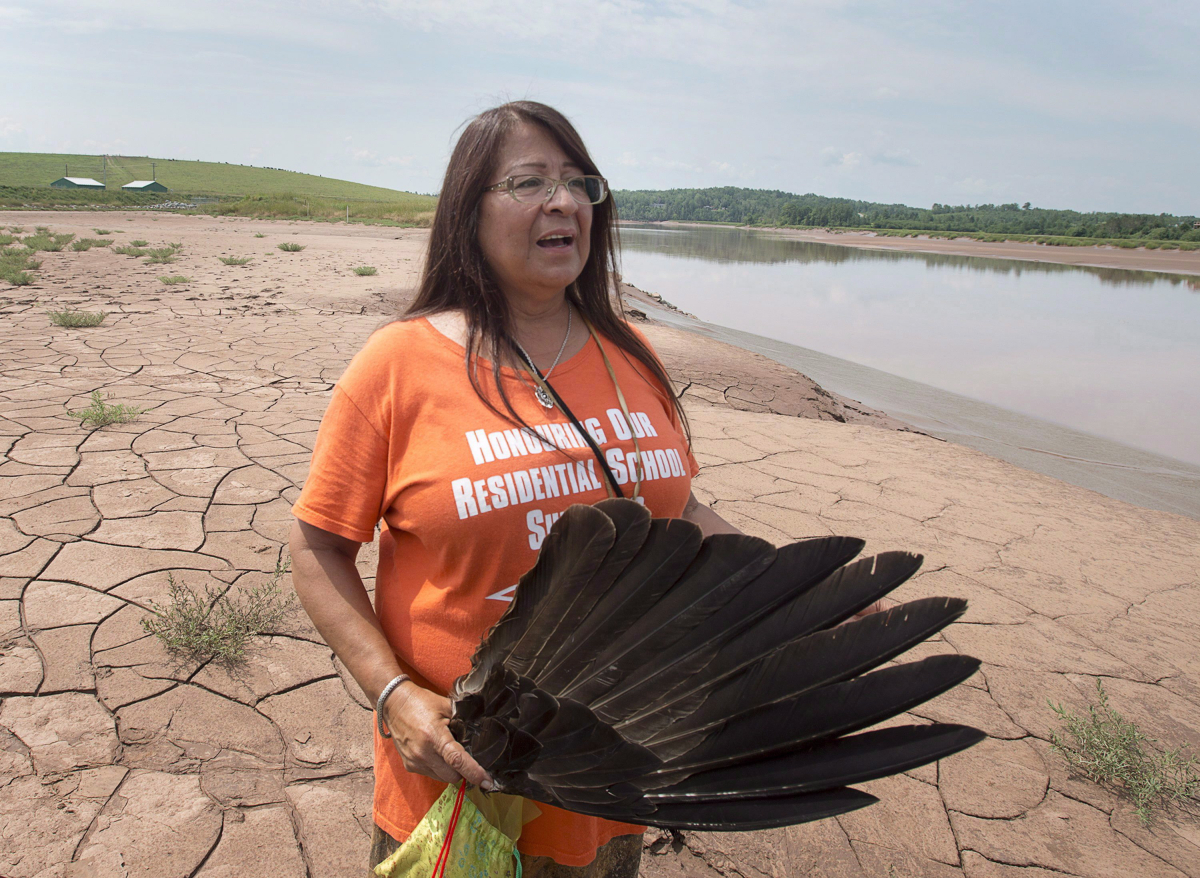


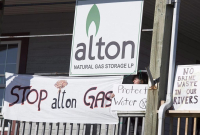

Comments
This article significantly improves my understanding of the proposed project but does not in any substantive way address my questions, concerns and objections, based on the continuing rather cavalier attitude of Alton and the somewhat less than reassuring government regulations.
Initially, I thought these were natural caverns being repurposed. Now I learn they will be created through drilling. My question is just how secure is such a man made structure? Is it leak proof? Will the drilling disrupt existing geological features? contaminate underground fresh water? Perhaps the environmental assessment addressed this - but has not seen fit to release the findings?
Secondly, supposing the initial construction is successful - who monitors subsequent performance and safety?
Thirdly, who monitors the release of the brine water? How is the monitoring done and when does the public learn about the results?
As they say the devil is in the details and we have vast and unhappy experience with abysmal failures of monitoring, failures of adherence to safety regulations, from the oil/gas sector, (e.g. sour gas wells anyone?)
The O/G sector always trots out the promise of thousands of good middle class jobs. It never mentions its continuing drive to eliminate jobs through automation, and monitoring is one of those repetitive tasks that lends itself to automation. This does not by any means insure safety, nor does it ensure accuracy or compliance with regulations. Any measuring device, automated or human tended can be rigged to falsify data. (Volkswagon diesel emissions?)
The crux of the dilemma is that there is nothing inherently safe or healthy connected with any part of the O/G sector. Quite apart from the climate disaster of burning fossil fuels, there are also vast devastations associated with all aspects of its industrial process from drilling, to transport, to refining. O/G is toxic - no matter how you parse it.
Sounds like a clever plan : pumping highly explosive gases underground .. what could possibly go wrong? Why not fork out the cash to liquify it and store it in tanks above ground as is done elsewhere?. Unless of course the business case relies on trashing the commons in exchange for jobs? Wait, I think I’ve seen this movie before and can tell you how it ends... isn’t it set in a place called .. boat harbour?
This seems like the have-your-cake-and-eat-it-too approach this government is also taking on the climate change file: provide political cover and support for the oil and gas industry, even changing the basic rules when necessary? Whether the year is 2009 or 2019 it seems that only the government’s tone has changed, the decisions remainthe same.
They just won’t stop, will they? I was delighted for Nova Scotians when BP struck out on that Aspy D-11 exploratory well and abandoned it, but there seems to be no respite from this rapacious industry. It’s demoralizing watching other countries making the responsible decisions needed to shift to a low-carbon economy while nothing changes here.
I still remember reading a story at CBC in late 2016, that quoted John Manley, one of the LPC’s tutelary gods, so: "Fundamentally, Canadians need to recall 30 per cent of our economy is natural resources. That's what our business is in Canada. We may like to think we can survive off making solar panels and medical devices, but we can't." How the fact that just under a third of your economy is based on exploiting natural resources precludes doing other things he never explains, of course, because it’s a purely political decision.
So the project would be subject to federal regulations? And we all know how carefully corporations follow government regulations. They don't. And we all understand that government fines for breaking regulations are often considered a cost of doing business. The Mt. Polley tailings pond disaster is but one of countless examples.
Now the rest of Canada can see what we deal with in Alberta on a daily basis. In opposition, our Provincial NDP were great critics of the oil and gas industry. In Government, they are the same old same old. Somehow, we must change our legislation to hold political parties responsible and make industry prove safety for the environment before they are allowed to carry out these destructive activities.
Couldn't they just, I dunno, run a pipe out into the bay where it's SUPPOSED to be salty and dump the brine there? Probably cost less than all the lobbying and reviewing and so on.
My guess - the brine, like road salt, is probably highly corrosive. And so why invest in pipe and pumps that you have to run, maintain and eventually dismantle when you can use a community’s river as your pipe and completely externalize the cost?
They said they were defenders of our environment when they campaigned in 2015. More fake news?